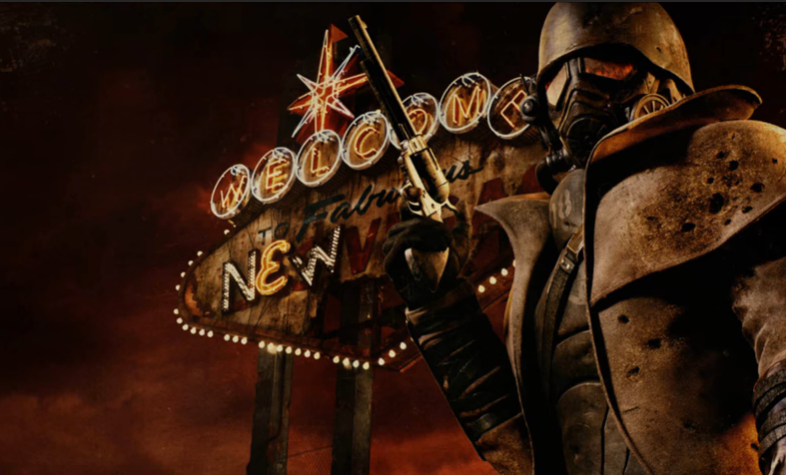On April 14, Fallout 76 received an enormous update that changed everything. With the addition of Wastelanders came interactive non-playable characters (NPCs), dialogue options, and factions. Initially met with reasonable skepticism when trailers were released, its new update ultimately defied fearful ideas and actually made Fallout 76 worth playing again.
As enthusiastic fans emerge and discuss their love for the wasteland, there is no better time to discuss a game that leaves the mouths of many – Fallout: New Vegas.
Prior to Fallout 4’s release in 2015, Fallout: New Vegas had been the latest installment for years. Therefore when the trailer for Fallout 4 was released, there were fans on social media platforms like Tumblr who began replaying New Vegas as a way to prepare themselves for the wasteland once more.
At the time I was a casual gamer, ignorant of Fallout’s existence, yet I was increasingly curious by its presence. Giving in to my curiosity, I made the decision to give the game a try and asked my followers what should I play first, Fallout 3 or Fallout: New Vegas. I was constantly advised to play the latter.
After buying the game, I found myself spending hours playing. It was the sort of intimate investment I had never previously felt for a video game. Next, I would play Fallout 3 which I initially placed on equal footing with Fallout: New Vegas as there were many similarities with dialogue and graphics. Finally, I would play the greatly anticipated Fallout 4 upon its release.
But surprisingly, Fallout 4 took me far longer than it should have to complete. Fallout 4 remained a game one could play for hours, yet it did not have the same appeal as its predecessor and without warning, Fallout: New Vegas became my own favorite installment.
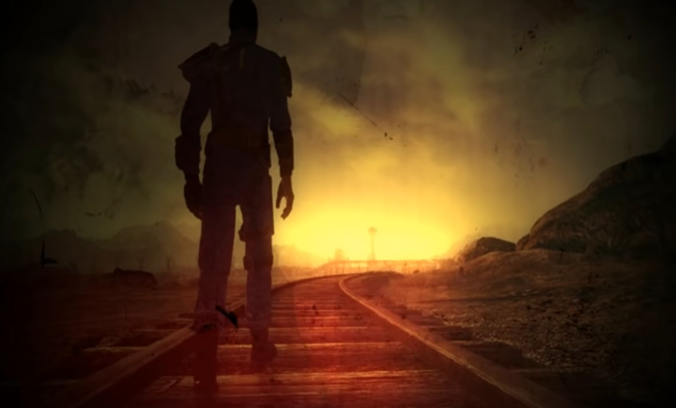
In 2020, some may wonder why a game from 2010 filled with country music, dated graphics, and numerous glitches reigns supreme in this franchise. However, it is important to comprehend the background of Fallout: New Vegas for its praise to be understood.
Unlike Fallout 3 and 4 which are developed by Bethesda Game Studios, Fallout: New Vegas was developed by Obsidian Entertainment and published by Bethesda Softworks. This caused a considerably different approach than Bethesda’s take on the wasteland as Obsidian Entertainment had several employees who previously developed Fallout 1 and 2 at Black Isle Studios.
Obsidian’s previous involvement with the franchise is displayed throughout the game, as there are multiple references to Fallout 2 which doubtlessly delights those who also possessed previous extensive knowledge. However, many people’s introduction to this franchise was through Fallout 3.
“I started with Fallout 3 by a friend’s recommendation around 2012 and fell in love with the world and characters,” said Henry Wolski, a Sinclair student who is also a fan of Fallout: New Vegas. “I had just finished Skyrim when it first came out. Probably within that year I learned of New Vegas and played through it.”
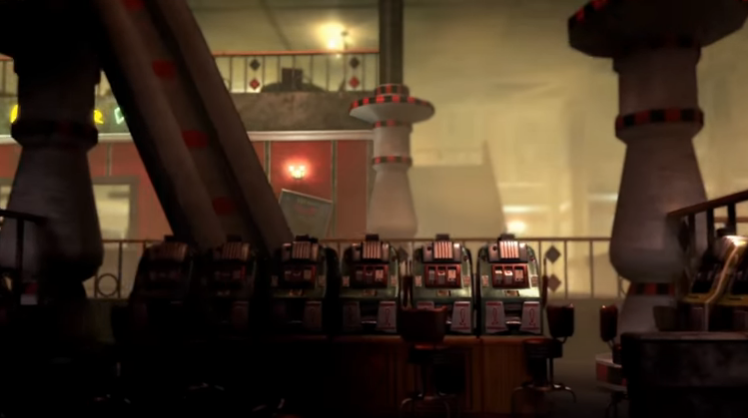
The opening scene for Fallout: New Vegas begins in a way that instantly captures interest. Under a bright moon, multiple things occur. A desolated, wrecked casino is gradually zoomed out as “Blue Moon” by Frank Sinatra plays. Immediately, the mood for a 50s post-apocalyptic Las Vegas – appropriately called New Vegas, is established through this very scene. Afterward, the remnants of the old city are panned through, still standing mostly intact. Casinos are lit and inhabitants indulge in all it has to offer.
Scenery then drastically changes as the camera zooms out further, in which a heavily armed ranger is seen lurking in the welcome sign. He fires at a target and instantly kills him in the more dim, war-wracked city that hangs outside the city of lights. All the while, men – dressed as legionaries from the Roman Empire- look on at New Vegas from a safe distance. They move out, on a mission.
Finally, the camera stops panning to show a dark-haired, checker-suited man reminiscent of the mobster who was the driving force behind Las Vegas’ development, Benjamin “Bugsy” Siegal. He stands among three men in the middle of a desolate desert with an unidentifiable bound person at his feet. The words he gives the faceless figure before firing his gun are ominous in their own right: “this game was rigged from the start.”
This unfortunate person is the courier, the protagonist who is strictly identified by their occupation. The Bugsy Siegel-esque character is Benny the corrupt casino owner who, by the start of the game, was plotting to make New Vegas his own.
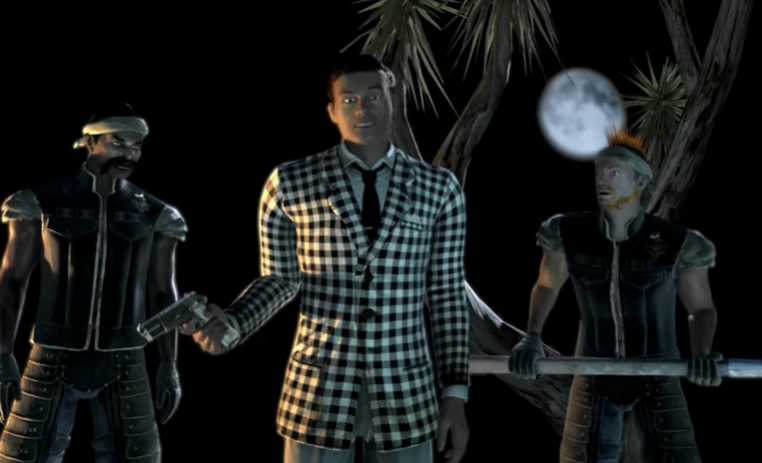
Before the game began, the courier was merely delivering a platinum poker chip to New Vegas that Benny was insistent to steal. The courier has no clue as to why this happened. Therefore, at the game’s start, the courier’s main goal is to find Benny, get the platinum chip back and finish their job.
Unless the player’s imagination desires it to be so, the courier does not have a father, spouse, or child. Unlike many Fallout protagonists, they are totally a blank slate. The game is additionally relaxed in how its dialogue does not make the player feel as though finding Benny must be immediately accomplished.
“The act of wandering around and having fun doesn’t seem out of place,” said Max Castleman, another Fallout fan who runs a blog on Medium under the handle @maxcastleman. “It’s not this urgent thing, like ‘Oh no, my dad/son are missing and I need to find them, and every second I spend dungeon crawling is another second where they’re potentially being murdered!’ My reluctance in finding Matthew Perry [Benny’s Voice Actor] just added to my characterization. ‘It doesn’t matter how long I take to find you, because wherever you go you can’t hide from me.’”
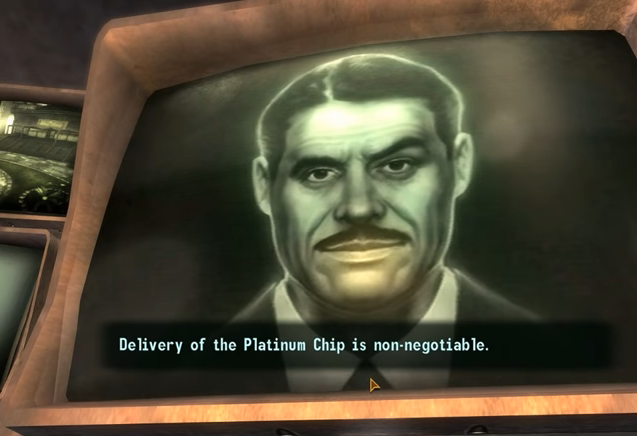
Benny is merely a minor antagonist in the midst of bigger and badder characters. After receiving the platinum chip, the courier could want to finish their job for their employer and go about their life or, they could assist the New California Republic (NCR) and unite the Mojave desert under their flag.
They could also gain favor with Caesar’s Legion, a faction regarded with fear and disdain. But that’s not all, the courier can be as ruthless and charismatic as Benny and seize power of New Vegas by the game’s very end. Every combination and possible choice belongs to the player.
Castleman’s courier navigated the wasteland through intelligence and charisma, initially aligning himself with the NCR before betraying them and claiming the Vegas Strip.
“The character I play in New Vegas isn’t Bethesda’s or Obsidian’s, it’s mine.” Castleman said, “and that’s just so exciting every single time.”
Wolski also acknowledged the creative possibilities in Fallout: New Vegas, playing as a courier who excelled in combat and speech. In the end, he would also be running New Vegas.
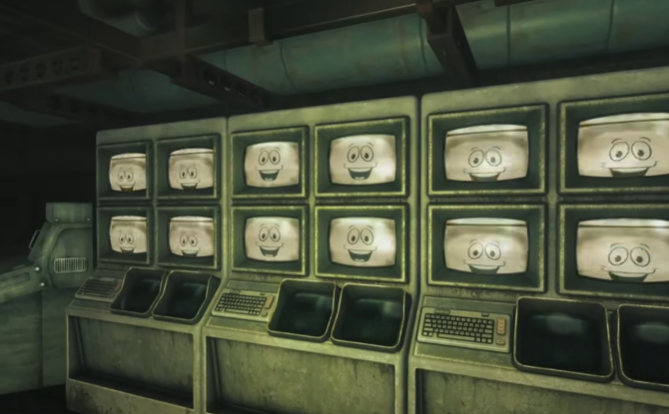
“[New Vegas is] freedom combined with a great atmosphere,” said Wolski. “In Fallout 3 and 4, you wake up from a vault and have to find a member of your family. You have to pick a side with one faction and destroy the others.”
In Fallout 4, it is impossible to have the same wide variety of endings. The player will inevitably be confronted with the matter of destroying all opposing factions. However, it is also mandatory to interact and even side with these groups, as each one furthers the plot and points the character to where they need to be – this contrasts how there is no set path someone needs to follow in order to get to New Vegas.
Rejecting a faction may initially work, but ultimately the player will be led into helping them in order to advance. However, an essentially linear story is not entirely what totally detracted Fallout fans from Fallout 4. Some of the game’s key functions drew them out,
“I’m not a big fan of resource collecting or building games,” said Wolski. “I just don’t have the creativity or patience for it, and Fallout 4 used it as a major mechanic.”
Something all players of Fallout: New Vegas recognize is the rich worldbuilding that goes hand-in-hand with its narrative.
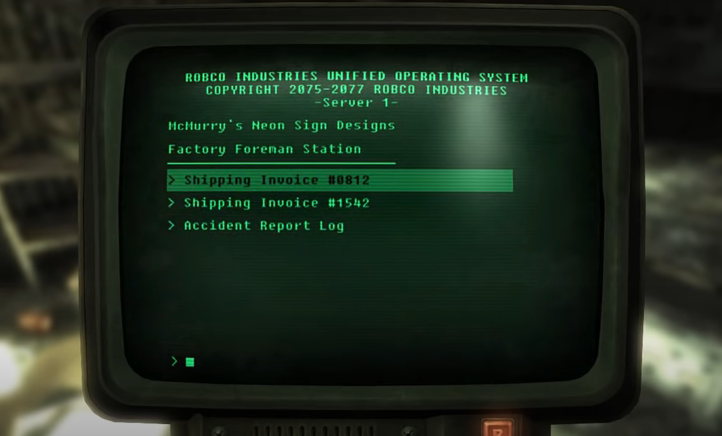
“One of my favorite parts of Fallout is going to a building and through notes, terminals, recordings and arrangement of things on the ground.” Wolski said, “I can put together what went wrong through the several years of the apocalypse. It builds up a great atmosphere and rewards exploration. And Vault 11 has one of the most fascinating and screwed up histories in the series.”
Another perk of Fallout: New Vegas is the comedy of the writing. Although the game has its serious moments, the player can truly come across some oddities in the wasteland by chance like Maud’s Muggers, a dangerous gang consisting of elderly women.
“It’s the only game of the trilogy where the humor really works,” said Castleman. “And it has tons of personality. I do love all the crazy characters you meet, a gang run by an Elvis impersonator with a robot dog for example.”
While the courier is unable to romance their companions, all of them remain intriguing characters due to how they are written. Each character has a problem that needs to be solved and the courier is capable of assisting them with solving these issues yet, at the bottom line, their arcs remain about them and not wholly how the courier impacted their life.
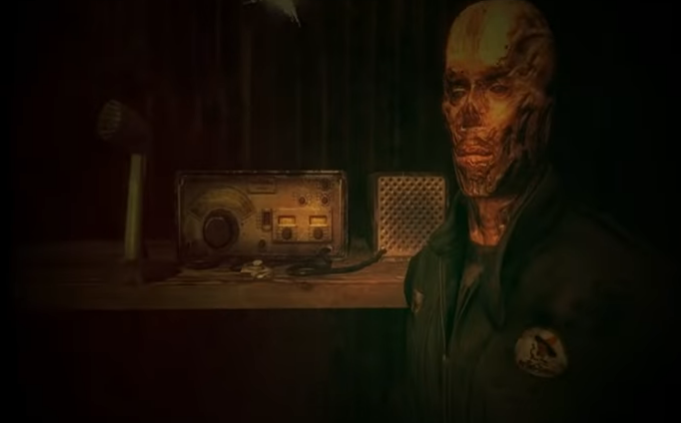
For instance one of the companions, Raul Tejada, has a narrative centered around his inner conflict as to whether he should embrace his former gunslinging ways or remain a mechanic. By the end of the game, his epilogue may consist of him dying in combat, never finding peace with himself, fixing ancient machinery, or yet again becoming a heroic gunslinger.
Every companion has their own varied ending in the epilogue that may be satisfactory or may not be ideal. Ultimately, that remains a part of the game’s charm for even with all of the player’s best attempted decisions, there may not be a perfect ending for each town, person, or organization the player came across on their courier’s journey.
All and all, when there is nothing left to do in Fallout 76 until its next update, it would be worth experiencing, or re-experiencing, Fallout: New Vegas and seeing all it has to offer.
There is something for everyone to take out of this game, whether one has an appreciation for an abundance of lore, cowboys, mobsters – or even the Roman Empire. These concepts mashed with sci-fi, comedy and horror is a strange combination, but it works.
Ayzha Middlebrooks
Associate Editor


